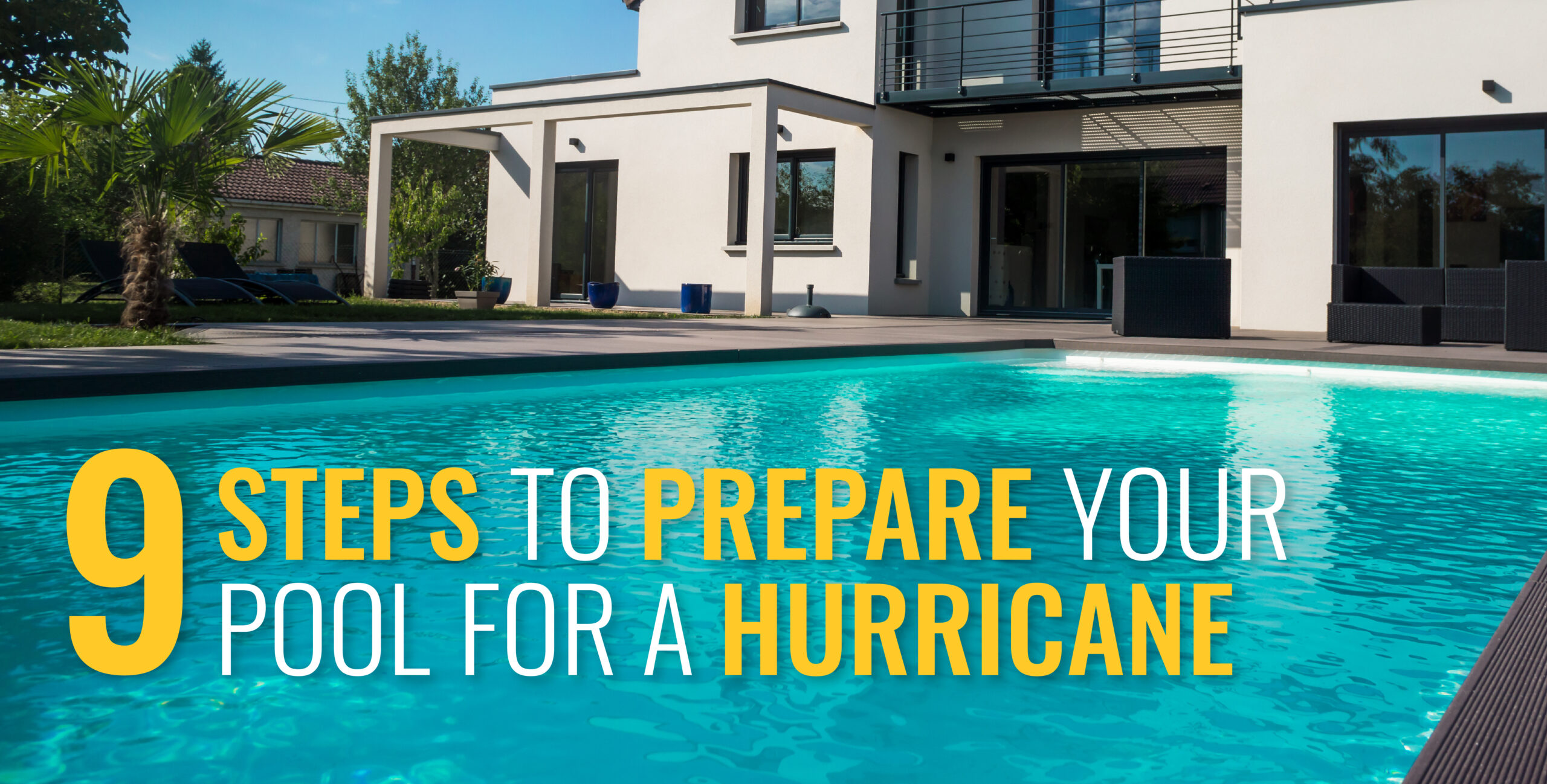As hurricane season approaches, it's crucial to ensure the safety of your property, including your…

What is the Average Lifespan of a Swimming Pool Heat Pump?
One of the most common questions asked by swimming pool heat pump shoppers is: How long do heat pumps last? Several factors play a role in the lifespan of a swimming pool heat pump. In this article, we address some of these factors in order to provide you with the knowledge to extend the life of your heat pump.
- Electrical Connections: Power surges and outages can greatly reduce the lifespan of your heat pump. We at AquaCal recommend that you hire a licensed electrician to perform all electrical work on your unit you should never attempt to perform any electrical work yourself. Moreover, to protect your heat pump from power surges, ground your wiring and install a surge protection kit.
- Maintenance: If you regularly maintain your heat pump, its life can extend well past its warranty timeframe. Ensure that your heat pump has proper airflow by removing all leaves, twigs, and other debris from the top of it. You should direct any sprinklers away from your heat pump: poor-quality water can damage its internal components. We also recommend hiring a certified heat pump professional to perform annual maintenance tasks to your unit. These tasks typically include cleaning internal components, checking electrical connections, checking water flow, and ensuring proper operation.
- Swimming Pool Water Chemistry: Balanced swimming pool water plays a major role in the lifespan of your heat pump. Maintain appropriate pH and alkalinity levels in your swimming pool water. High levels of harsh chemicals can damage and corrode your heat pumps internal components. Your heat pump should also be installed before any chlorine or bromine feeders.
- Warranty: Most heat pumps carry complete warranties that range from one to two years. Complete warranties typically cover labor and parts. Most heat pumps also carry parts-only warranties that range from five to seven years. Moreover, some heat pump manufacturers, like AquaCal, even offer a lifetime warranty which covers the tubing for the heat pumps heat exchanger. Check with your heat pump manufacturer for specific warranty information.
- Heat Exchanger: The material of your heat pumps heat exchanger greatly affects its lifespan. The primary cause of premature heat pump failure is malfunction of the heat exchanger. Ordinary heat exchangers are made from either cupronickel or copper, which are susceptible to attack from swimming pool chemicals. Once the heat exchanger fails, your heat pump cannot operate. Titanium is virtually impervious to water-chemistry damage, which makes it the most durable and cost-efficient material for your heat pumps heat exchanger.
With proper installation and maintenance, a heat pump will generally have a lifespan of about ten years, though many have lasted longer. We at AquaCal have seen some last as long as 15 years!
So those are some factors that will affect the lifespan of your heat pump. For more tips on maintaining your swimming pool, check out our article Swimming Pool Heat Pump Maintenance Tips. Feel free to leave any thoughts or questions in the comments section below!




I’m looking at 155 aqua Cal thats from 1995 , to buy.. they only asking $400.. my / is can I still buy a heat exchanger for this uint,, I m in the ac bussniess I can replace any part, i just to know the parts are avil. thank you..
Good Morning Mr. Camacho,
Hope you are doing well. The heat pumps from 1995 would have had a cupronickel heat exchanger & we do not carry most of those coils anymore. To be sure, we would need a full model number to look into the Bill of Materials. Please feel free to call us at 727-823-5642 & ask for Tech Support. We can assist further is you have any pictures available.
Thanks
Robert Brown
AquaCal.AutoPilot Tech Support
My pool heater broke and my pool person had a used Heatpro HP1100 Serial No. 21120411003052001 that he installed and charged me $800.00 for it. It has a single control knob for the temperature that has to be used in conjunction with a pool thermometer. Is there anyway I can find out how old it is? I can’t look it up on the internet or Hayward’s website.
Hi Dave,
We recommend you call Hayward’s customer support line to determine the age of your unit. (908) 355-7995.